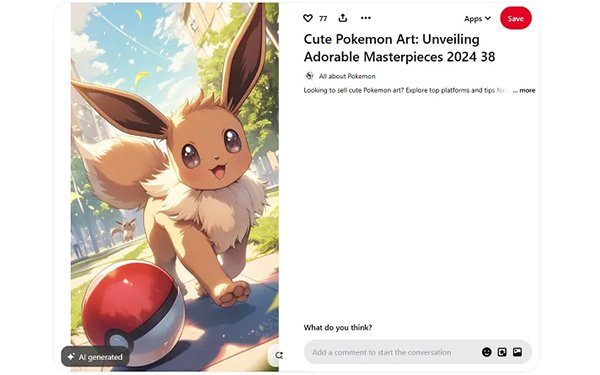
Artificial intelligence (AI) has helped Pinterest boost its ad business and tighten its algorithm. However, AI is also to blame for
the social platform's "slop" problem.
For months, low-quality AI-generated spam content -- or “AI slop” -- has been plaguing the app and frustrating users. According to a recent report
from “Futurism,” “slop is everywhere on Pinterest, frequently ranking in the top results for common searches,” popping up across all categories, and often linking back to
AI-powered content farming sites.
As a platform utilized by people looking for advice and inspiration for real-life projects and aesthetics, slop may be making Pinterest less useful as a
whole.
This is why the company has added a new policy label to AI-generated images through new AI detection technology.
advertisement
advertisement
According to the company, Pinterest may display a label in the
foreground of an image Pin when it detects that an image has been “generated or modified with AI.”
The labeling process, it says, is in accordance with IPTC standard for photo
metadata, which allows Pinterest to highlight AI-generated content based on the data of an image.
For ads, Pinterest says it will only display a disclosure in the “Why am I seeing this
ad?” section, “indicating whether the ad includes modified or AI-generated content” via metadata detection.
While labels on ads won't be as transparent, the company says it
is working on ways to expand its capabilities to “better identify GenAI content in the future through additional technologies.”
Tagging AI-generated images within the Pinterest
feed may not immediately rid the platform of AI slop, but it will likely help users avoid clicking through to what they believe is a genuine piece of content, and, soon, help advertisers avoid paying
for slop-adjacent ads.